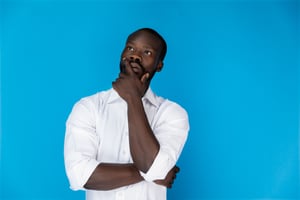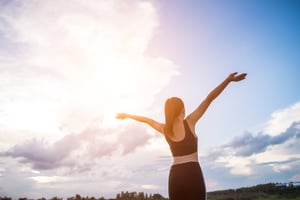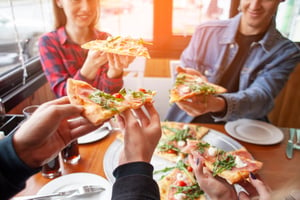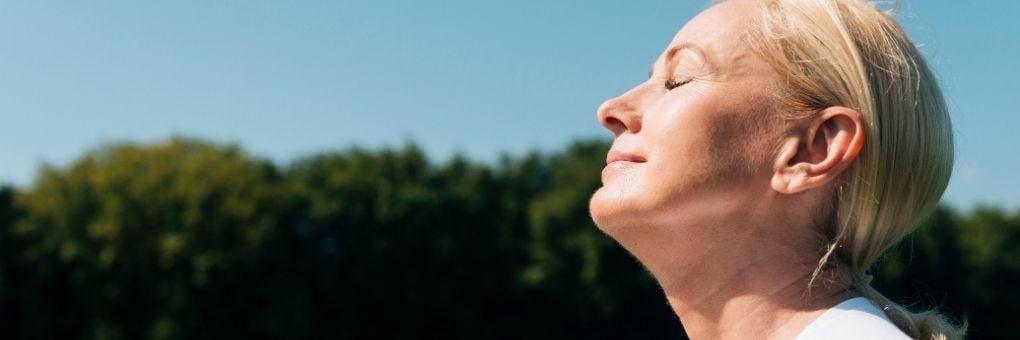What is mindfulness, really?
Spring is wrapping up.
Did you miss it?
End of school year, graduation season, first-week-of summer break, gone. The usual telltale signs of that long burst after spring break (school attire starts covering less and less, boots and tennis shoes give way to flip flops and slides, teachers get that “is it almost over?” look in their eye, students get squirrelier, gardens and bedding plants go in, inflatable pools go up, and we breathe a collective sigh and kick off summer barbeques with the opening bookend of summer - the Memorial Day weekend) were overshadowed by a pandemic and fear and discord, and more recently with an uncomfortable reality we as a nation are facing and trying so hard to respond to.
Perhaps you didn’t miss it.
- Perhaps you didn’t miss the extra bodies at home and the disruption to your work and the challenges this Spring brought.
- Perhaps you didn’t miss the inching by of March and April or the racing pace of May.
- Perhaps you were mindful of the experiences of your loved ones, inside and outside your home, your employer, your customers, your community, your country.
- Perhaps you were mindful of the needs growing around you, the discomfort and distress of those who didn’t have enough, whose emotional and physical limits were stretched to the very limit.
If you caught those things, if you were aware, then thank you for your mindfulness. And if you weren’t mindful, you might have missed some pretty important things.
What is mindfulness, really?
Mindfulness is a way of being that allows you to be present in a given moment, to be aware, to be “in tune” with the situation. In an exchange with another human, mindfulness allows us to consider where I and the other person are in the given moment, including the circumstances around, the history that brought us to, and the long-term future impacts of this moment.
If we go barreling through without being mindful, we run the risk of missing what might be just the thing to help ourselves or that other person. At worst, we risk damaging relationships irreparably. At best, we risk missing an opportunity. If we are not mindful, joys go un-savored, peace goes un-measured, kindness goes un-delivered, gratitude goes un-expressed, casual habits become ingrained into part of our cultural norms, and people become marginalized.
Being mindful by no means requires ancient mystical practices or bending or stretching or sensory alignment. At its core, it’s truly about being more aware of our moments. And really, it has multiple benefits.
 Mindfulness is a technique that allows you to be more present and more aware of your current circumstances. I would imagine that at the start of the COVID-19 pandemic, many of us did not want to be excessively mindful; we didn’t want to think about it. But, as states ease restrictions and the nation sees a frenzy of activity, I believe that mindfulness can help us avoid careless missteps. It allows us to be more present in our comings and goings so we do not create a second wave of illness. Mindfulness causes us to stop and think before taking action.
Mindfulness is a technique that allows you to be more present and more aware of your current circumstances. I would imagine that at the start of the COVID-19 pandemic, many of us did not want to be excessively mindful; we didn’t want to think about it. But, as states ease restrictions and the nation sees a frenzy of activity, I believe that mindfulness can help us avoid careless missteps. It allows us to be more present in our comings and goings so we do not create a second wave of illness. Mindfulness causes us to stop and think before taking action.
 Mindfulness poses several health benefits for you personally. Being mindful in the moment impacts your physical well-being. This could be noticing when you are too full at dinner and so you stop eating. When you are mindful, you are breathing deeper, and you are more rested. In turn, you live longer. You may laugh more, and you may build deeper, richer relationships. Many faiths have long practiced mindfulness by way of meditation or prayer, and these things aid our spiritual well-being as well. Mindfulness can help keep you balanced and healthy.
Mindfulness poses several health benefits for you personally. Being mindful in the moment impacts your physical well-being. This could be noticing when you are too full at dinner and so you stop eating. When you are mindful, you are breathing deeper, and you are more rested. In turn, you live longer. You may laugh more, and you may build deeper, richer relationships. Many faiths have long practiced mindfulness by way of meditation or prayer, and these things aid our spiritual well-being as well. Mindfulness can help keep you balanced and healthy.
 One of the other spectacular parts of mindfulness is that it keeps you from missing out on your own moments. If we go barreling through without being mindful, we run the risk of missing out. Mindfulness lets us be mindful of the time, of how we're feeling, or if someone is trying to reach you. Have you ever been on a vacation where you were so caught up in doing and seeing and documenting everything that you came back from your vacation needing a vacation? It may be because while you were on your vacation, you were not practicing mindfulness. You did not soak it in. Mindfulness lets you soak in the moment.
One of the other spectacular parts of mindfulness is that it keeps you from missing out on your own moments. If we go barreling through without being mindful, we run the risk of missing out. Mindfulness lets us be mindful of the time, of how we're feeling, or if someone is trying to reach you. Have you ever been on a vacation where you were so caught up in doing and seeing and documenting everything that you came back from your vacation needing a vacation? It may be because while you were on your vacation, you were not practicing mindfulness. You did not soak it in. Mindfulness lets you soak in the moment.
 I think one of best things about mindfulness is that it keeps you from mis-stepping in someone else's moments. If we are not mindful of someone else in a given moment, at worst, we risk damaging relationships irreparably. At the best, we risk missing an opportunity to lift them up. Have you ever missed it when someone was trying to tell you something important? Interrupted them when they were trying to share something personally meaningful? Being mindful lets you see them, truly see them in the moment, not miss them.
I think one of best things about mindfulness is that it keeps you from mis-stepping in someone else's moments. If we are not mindful of someone else in a given moment, at worst, we risk damaging relationships irreparably. At the best, we risk missing an opportunity to lift them up. Have you ever missed it when someone was trying to tell you something important? Interrupted them when they were trying to share something personally meaningful? Being mindful lets you see them, truly see them in the moment, not miss them.
So the next obvious question is, “How do I ensure my own mindfulness?”. There isn’t just one “right” way to go about it. My mindfulness and your mindfulness will not be the same. Nonetheless, here are some tips that will help you in your own endeavors to be more mindful.
- Seek an awareness (without judgement) of sensations, feelings, and thoughts.
- Ensure your own deep breathing.
- Intentionally focus your thinking.
- Practice sensory awareness. What do you see with your eyes or smell with your nose?
- The more you practice, the better you get at it.
- Long term benefits increase as you make it a habit over time.
If you missed things before - if Spring passed you by, or you find your moments and minutes and days blurring together - what’s something you can do to ground yourself in the moment? How will you be more mindful? Because that blur? It’s not sustainable; it’s not serving you, it’s not helping you serve others, and it’s likely coming at a long-term cost to your health, your well-being, and your relationships with those around you. Focus your thoughts on whatever is in front of you, especially if it is another person. Be mindful. Be present in each moment - what you notice might surprise you.








